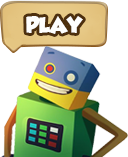Every day our kids play nonstop with everything and anything that they can get their hands on. What if we made sure they had plenty of games within reach? It would be even better if those games were puzzle-related.
Puzzles are fun learning games that are both entertaining and useful. They help kids spend their time challenging themselves and improving their thinking. Puzzles can involve numerous things. They can include the alphabet, vegetables, shapes, coloured drawings, math and other topics. These games increase in difficulty based on different age groups. Parents should have age-appropriate puzzles on hand and should make sure to change them out as their kids grow and learn.
Puzzle games offer many benefits:
- Puzzles are useful educational tool with minimal harmful side-effects.
- Puzzles can increase visual and spatial awareness since kids must inspect the pieces and figure out where each piece should go.
- Puzzles teach kids the vital skills of patience and focus. It teaches them to think carefully, avoid rushing, and focus on the end result.
- Puzzles grows up motor skills of your kid by make him move his muscles continually for examine several solutions reaching to the answer.
- Puzzles are a problem to solve. Solving problems helps kids learn how to think through multiple scenarios and develop many solutions before deciding on the best one. This skill is handy in a person’s personal and professional life.
- When a child finally solves a puzzle, they will feel proud for achieving their goal. Repeating this feeling can cause a child to seek new challenges and raise their self-esteem.
Don’t miss out on the chance to help your child develop their mind. Even babies can join in on the fun! Choose the perfect puzzle for your kid’s age:
- 10-12 months: you can use cubes and a big container. Encourage your baby to put all the cubes in the container. This activity supports motor skills and your child will love repeating it again and again.
- 18 months: puzzles with large pieces are very important at this age. Use puzzles that consist of a single piece that can be held in a child’s hand and put in an appropriate place.
- 18 months:puzzles with large pieces are very important at this age. Use puzzles that consist of a single piece that can be held in a child’s hand and put in an appropriate place.
- 2 years: you can now introduce puzzles consisting of three pieces. The child can analyse the pieces and determine the right place for each one.
- 3 years: more pieces can be introduced so that puzzles can consist of up to eight pieces. The child will exhibit more focus and better logical thinking to solve the puzzle.
Your child’s development in the early years is the most important time of growth. It’s important to help your kid find new and fun ways to learn. Support your child and encourage them to learn all kinds of useful things!
Older children should try the RoboGarden platform. It’s a fun and educational way for kids to learn coding. They start by moving blocks around like puzzle pieces to make Robo, RoboGarden’s hero robot, move and carry out his missions. Register now on RoboGarden.

